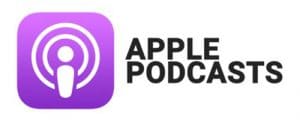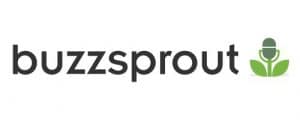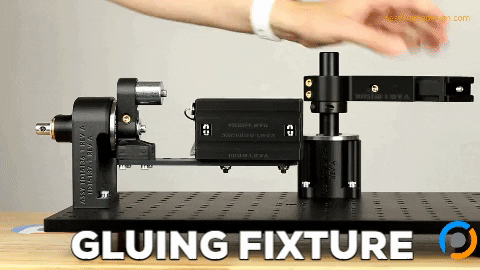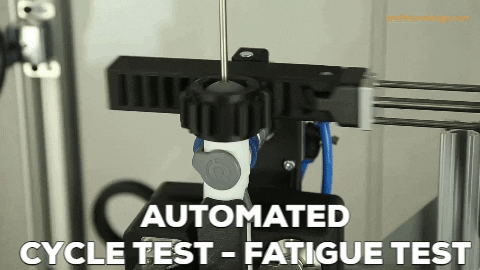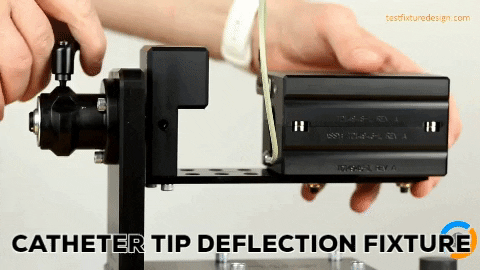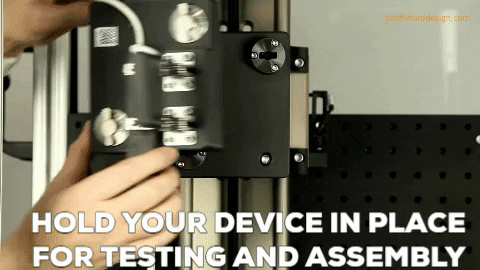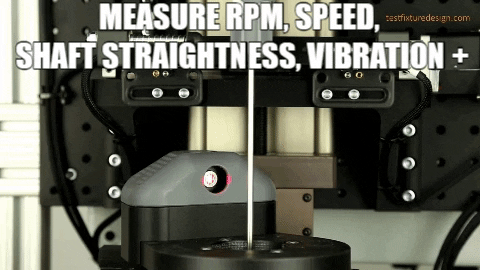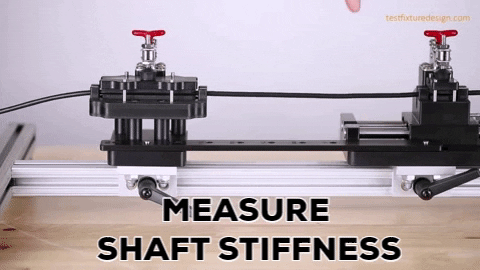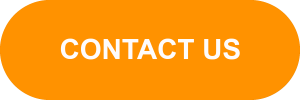Roland Schwarz | R&D Engineering Series – Interview 2 of 6
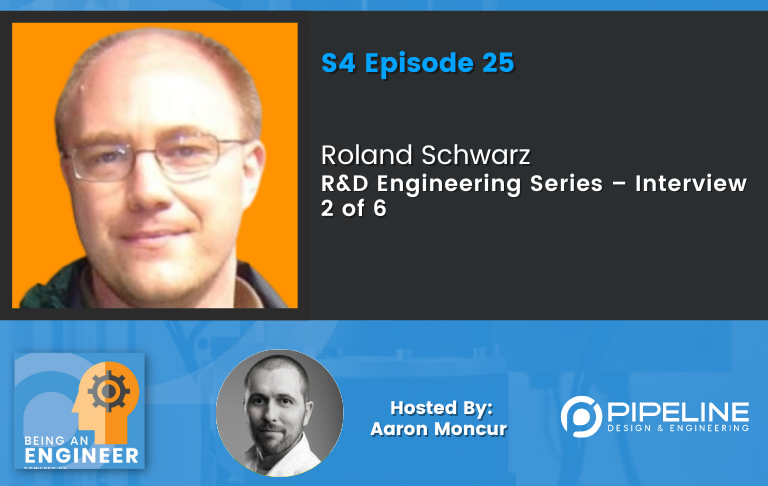
Who is Roland Schwarz?
Roland Schwarz is a mechanical engineer who has held several R&D roles and is currently working at Surfaceink, a product design & development consultancy.
EXPAND TO VIEW EPISODE TRANSCRIPTION
Presenter 00:00
Hi, everyone, we’ve set up this being an engineer podcast as an industry knowledge repository, if you will, we hope it’ll be a tool where engineers can learn about and connect with other companies, technologies, people, resources and opportunities. So make some connections and enjoy the show.
Roland Schwarz 00:18
You know, I had a recruiter once call me that was, you know, like, like, what are you looking for? I said, I want to be the dumbest guy in the room. I don’t want to be in over my head. And this team I was I was Forrest Gump.
Aaron Moncur 00:45
Hello, and welcome to the being an engineer Podcast. Today we are speaking with Roland Schwartz, a mechanical engineer who has held several r&d roles and is currently working at a company called SurfaceInk a product design and development consultancy. Roland, thank you so much for being on the show today.
Roland Schwarz 01:03
Oh, glad to be here. I’ll be glad that excited to have a chance to share what I want to have with the engineering community. appreciate you inviting me. Thank you.
Aaron Moncur 01:15
Absolutely. That’s what it’s all about sharing engineering knowledge with the community. We’re doing a r&d series here. This is number two of six that I have planned. So let’s start with the typical question that I asked everyone. What made you decide to become an engineer?
Roland Schwarz 01:34
Yeah, um, it just sort of happened. Really. Mostly following my nature, it just I started off really young working for my dad, lot of stories out there, I went through a few of your other podcasts, everybody seems to have a story about their dad, which says a lot of roots have a lot of engineers. My dad was a research chemist and prolific inventor 50 Odd patents. And then he had his own company. And I had a chance to start pretty young with him in junior high working machine shop building stuff, and then assembling and doing these lines, test lines for for long fibers. And that so I start really young with with inventing stuff and building stuff. And like most young people, and I think I had dreams of rock stardom and got distracted with that for a bit. And then that didn’t pan out. So I joined the Navy and went to nuclear power school and did well enough there to get the attention of the people who were were. were administering the ROTC scholarships, and then I applied and those award, went to engineering school, went to engineering school, very power, heavy, everything was actually very focused on power plants and keeping ships moving. Eventually, you know, there’ll be a civilian career, but I was really focused on that. And then my senior year, I got medically disqualified who I already like, well, I have a nice life. So I started my civilian career at that, and but I didn’t know like I wanted to invent and I wanted to design. And so I found jobs where I got design and got my first real engineering job at Jacobson, Textron and in Racine, Wisconsin, and making electric versions of gas and diesel hydraulic tractors, well, I actually even got to start in the Advanced Design Development Group right away in my selling career. So
Aaron Moncur 03:56
very cool. Okay. So do you do you think of yourself as specifically an r&d engineer or just kind of a general engineer and what even is the difference between the two?
Roland Schwarz 04:10
Yeah, that’s that’s a good question. And I’m sure there are some r&d purists that are going to be like that. You know, and and it’s, it would be hard I’ve had the title it’s been on my business card in the past you know, and I am a product design engineer really buy buy stock and trade, but I got it. I seem to give off the r&d type vibe which works out well for me because I I get pulled into the fray. I get pulled into the room or cool things are happening and the really crazy smart people are trying to do really crazy things and they seem to want me along for the ride. So I get I get to a had many great opportunities to be part of that.
Aaron Moncur 05:00
Well, speaking of many great opportunities, what? What are some of the common challenges that you seem to run into within that that r&d framework? Do you see, you know, kind of a trend of the same type of thing popping up over and over? Well,
Roland Schwarz 05:15
there, it’s nobody goes into research things they know about, you know, it’s, it’s always a cloud. It’s always the mass of what we don’t know what we know, we need to do something different, or we need to learn something, and we’re not even sure. We’re hoping that the research becomes development. We want it, you know, but it’s, it’s, there’s always a problem. And it’s not always an obvious easy solution that can be arrived at sometimes the only solution is that you learn something really important that tells you what can’t do.
Aaron Moncur 05:49
Yeah, yeah. What if you had to define what r&d engineering is like? What, what would you say is talking to maybe a young student who is going to school to become an engineer, but hasn’t really had exposure to the industry? How do you describe r&d engineering? In your opinion?
Roland Schwarz 06:09
Oh, god. Yeah, you’d think I would have a more ready answer for this? Yeah, one of the things I said in our exchange is like, you know, amongst the things and other dads story, my dad was wanted to be a concert pianist, and he was fantastic. You know, all the stuff you hear shorter play on the peanuts cartoons, he played from memory and all that. I am not a pianist, keyboardist keeper. And I feel same with r&d, because like, I’ve gotten to work with scientists and PhD engineers help them do these things. So really, you know, I’m a lot more eager than Frankenstein when it comes to this. But it’s r&d. It’s it’s finding new things. It’s not it. Really. It’s, it’s about finding the true nature of something, and then hoping to exploit it.
Aaron Moncur 07:12
What do you have any any examples of that? Like defining the true nature of something? Can you think of maybe a project in the past? Where, where you did that? And there was some kind of tangible? illustration of it?
Roland Schwarz 07:27
Oh, yeah, yeah. One job I had, we were making hospital beds, basically, well, nursing home beds, but you know, and their beds that go up and down, almost like a lift mechanism. And, really, from an engineering perspective, pretty cool. You know, like, you know, honest mechanisms, you can solve most of these with basic statics, but the heart of all of these is always these electrical actuators. And, you know, they’re high. You know, the key key thing with warranty and performance, and they actually do care about speed, it’s hard to imagine that you care about the speed of bed. But yes, they do care how fast these things go up and down. And we had a whole lab set up to test and analyze these things. And we did, we broke dozens and dozens and dozens of these things in magnificent, wonderful ways. And we’re learning, learning, learning, learning how these things performed, we had I had one motor, you know, I think peak knowledge was when the president of one of these actuator companies hushed his engineers up and told them that, that I did actually know what I was talking about. And they could learn from me. So like, we actually were learning more about these products than the people who were making and selling Oh, interesting. All in the name of maximizing performance and avoiding bad product. And, and, and you know, one of the things that also goes along with that is that I like, I’m not always that great at the math, but I respect it. And I like it. We had multiple mathematical models to that were derived from our results. So we could very accurately exploit this new data and information that we were getting, you know, if you’re, if your math is right, and and your model is right, everything works. Then then you’re you’re off to the races. You can do all kinds of wonderful, crazy, groundbreaking things. And if your math is wrong, that means your ideas are wrong.
Aaron Moncur 09:46
Hmm, that’s an interesting insight. because math
Roland Schwarz 09:49
is just a numerical model and models are based on behavior and phenomenon. Your idea of what’s actually happening is wrong then the math isn’t going to add up to tell Are you something cool?
Aaron Moncur 10:01
So math is, I think, a great tool that most engineers use to one extent or another. What are some other tools that you found to be really useful within that r&d environment?
Roland Schwarz 10:14
Yeah, I was listening to a couple of your podcasts and like, a lot of references to sketching, and I’m horrible. If I wasn’t really, I’m really good at CAD, it’s my stock and trade. And I can whip that out and I can thrash it about and, and very quickly get to places. And I’m not afraid to be sloppy and sketchy, but it can also get really tight and refined. So for me, that’s, that’s really been my stock and trade when it comes to actually designing and expressing ideas. I envy the sketches and drawers and and sculptors that can, but I am not, but it’s worked out for me the other direction as well. And
Aaron Moncur 11:07
those sketches, probably NVu with your mad 3d CAD skills. I mean, there’s a lot you can do in 3d that you just can’t see with the 2d sketches.
Roland Schwarz 11:17
That’s true. And it’s, there’s, there’s times where it’s like, yeah, it’s like, what happens when this shape? That impacts that one? Bam, bam, yeah, you know, and yeah, actually see how that that comes around a lot, especially, you know, round round versus round B surfaces clashing and intersecting, and it’ll happen a lot of times in unexpected ways. Industrial designers like things to look a certain way and feel certain way. And then, like, you’ve you take two round things and mash them together. They don’t look round when they’re done. So you end up actually having to fake things in the long run to make them work. Right. That happens. But that’s a whole other discussion. And I know you’ve had plenty of ID development discussions. I know we’re not here for that. I don’t want to drag you off into those weeds.
Aaron Moncur 12:10
That’s another episode. Yeah, we’ll have to come back to that one. Okay, any other tools that come to mind that have been particularly useful? There’s CAD, that really just like the primary one that you’ve used?
Roland Schwarz 12:23
Well, my history you know, I’m very energy centric, because of my, my past training, and that even before the Navy, you know, with my dad, all of these fiber making machines, there’s a lot of heat exchange, a lot of literally hot air blowing all over the place. And it’s all energy exchange, I tend to view things. In physics and engineering through an human energy lens energy is the currency of engineering of physics. And so like he can usually like, like, how much does it take to get from here to there, you can usually figure that out. And what that does, you know, especially in the early parts of a venture is it tells you the ideal. Some mechanical systems, you know, like, well, ignoring friction, blah, blah, like, Well, yeah, actually, that’s important, because that tells you, this is the best you’re gonna do. You’re not doing better than this. So if you need something that’s better than the best you could possibly do No, wrong. You already know you’re, you got something else to do. So you don’t have to waste time with it. Absolutely. Yeah. Yeah, and I love physics, I hate it. I kind of a twisted, sick man that way. But it pays off it. If whatever your strengths are, just dig into them. And don’t be afraid to be real, extra nerdy about it. And music, art, your hobbies, if you’re into cars, everything contributes to your mindset, everything can cross pollinate. And, and inform your intuition. And then, if your information is good, if your education if you’re self education, however, you want to call that your culture, your intuition, so that what’s feeding your intuition is more likely to lead to something that’s realistic,
Aaron Moncur 14:27
and possible. Yeah, and I think a lot of that just comes with doing right, the the act of performing engineering work, and it doesn’t have to be within the context of some, you know, very formal project or were the school or anything like that, you know, pick a personal project and try and design something and build something and you probably learn as much or more from the failures as you do from the successes.
Roland Schwarz 14:54
Oh, yeah, yeah, I remember learning to cook. I’m not a great I think that’s something everyone can relate to you, you know, going through a recipe and instructions and a calendar full of ingredients to actually like, oh, Today I learned my oven reads hotter than it should get cleaning?
Aaron Moncur 15:19
Well, let’s see what what are a few things that you do often in r&d that you wish could just be way faster, you know, like, 10 times faster?
Roland Schwarz 15:30
Well succeed.
Aaron Moncur 15:33
That’s cheating. You can’t give that answer more granular. And,
Roland Schwarz 15:37
and, and that’s just did it well, and the flip side of that is fail, fail, fail fast. But fail, honestly. I had this, this was back at Jacobsen, again, my first engineering job and I actually left and they had three prototypes on a test stand, that we’re running, running this new device. And then I quit. And I went off to actually I went to Apple after that as a contractor, but I’m gone. And then I’m talking to one of my co workers a few weeks later, and I’m like, Well, what happened to my stuff? And then they goes all, nobody even looked at him. They just ran for weeks. Until they all broke. Well, fine, I’m still I still carry my baby. Like, well, how they all break. Oh, they all they all had the the certain failure on the belt they all had, and all three of them, like, let’s go. Like, we had three honest failures, because what would happen a lot of times is that sometimes somebody would be like, hey, that’s, that’s off a little bit. Let me adjust that. Let me fix that. You know, it’s like, no, you’re not the maintenance guy trying to keep it running. You’re these are your lab rats, you’re you’re letting them die a natural death and see what happens. You need that to happen. So honest, failure is you can’t you know, there are some things you have to let them run their course. And and yeah, and feel as as nature intended them to.
Aaron Moncur 17:22
That’s a great example. Maybe it’s a failure? Or maybe it’s a success. What What’s one of your proudest accomplishments within the space of r&d?
Roland Schwarz 17:33
Oh, yeah, I didn’t have much of an r&d role. But this was such a great project. And I can talk about it now. Because they published it. So like, I don’t think NDA is applied to things that were actually published and on national news, it was with Oculus assigned, they’re actually through through SurfaceInk, working on a brain control interface. So that’s this hexagonal hockey puck sized thing, and then goes on the side of your head and reads the blood flow in your speech motor cortex. And, you know, it was initially like, thought of as a brain as a game controller that you’d be able, the way the speech motor cortex works, is, you know, how, and of course, engineers are really good at this, how you’re thinking of something, but you don’t think you should see it yet. But your mouth says it anyways. That’s, that’s how the speech motor cortex works. Because as soon as you start thinking about what you’re going to say, you speech more cortex starts, like, landing the pumps, like, okay, so they could actually determine, roughly like, what types of sounds were going to be formed. Wow. And that, you know, they couldn’t tell the difference between no end goal, but they could tell the difference between yes and no. Amazing. It was and, and, you know, they had maps, I’m doing models of people’s hands, from scans, because everybody speed motor cortex, even, they’re all in different places, and even your own and left from left to right can be different. Fascinating. Yeah. So there was a lot of like, we’re trying to make special helmets to position these things and make them adjustable or, you know, get them in the right spot. And aimed right. But the really cool thing was, you know, I had a recruiter once call me that was, you know, like, like, what are you looking for? I want to be the dumbest guy in the room. I want to be and this team I was I was Forrest Gump balls like green multiverse Jenny. The party. Just crazy, smart people, literal brain scientists. Then, of course, image recognition people and I’m surrounded by PhDs are almost PhDs. And intellectual peasant with my bsme. There, but but I’m contributing, I’m doing my part. And, and they were all wonderful people too. Nobody treated me like a peasant. Oh, and that was a wonderful team to be on. And they were, you know, they had this goal of reading speech patterns. And in the process, well, you can’t start digging into the brain like that, without learning new things, like they are learning new things about how the brain works. You know, this isn’t just an electrical actuator, like, Oh, I didn’t know I could push that no, this is the brain are like learning new things about how the brain works. While they’re trying to figure out how to get this machine
Aaron Moncur 20:49
to work. Well, what an incredible experience. And what really struck
Roland Schwarz 20:53
me about this from day one, I’m working on this and they’re telling me what they’re doing. I’m like, this has such huge implications clinically, like, and with all the stuff I worked on, you know, from law and Moore’s computers, Padlets, your buds, you know, all the consumer toys I’ve worked on, I’m like, this is the first thing I’ve ever worked on, that might actually make someone’s life better case. And they actually did that they took it. And this is where it gets published is that they took it to UCSF and tried it out. A version of this. This quadriplegic is quadriplegic and nonverbal. I almost imagine like Captain Pike on that episode of Star Trek, where he can just make the light blink, but he could do more than than light, make the light blink, he could actually form words and make make sense rudimentary sentences. So this guy who had been paralyzed and nonverbal, and really hopelessly trapped, his body is finally able to communicate unbelievable. Wow, yeah, I was just thrilled that something that started off at that level, I was like, wow, they’re actually,
Aaron Moncur 22:04
I think most, most of us as engineers, we love solving problems. And that in and of itself, is enough. But when we can solve a problem that like actually helps someone that makes someone’s life better. It just, it takes it all the way to the next level. Right? I think that’s just part of us. As engineers, we, we love that. I mean, maybe it’s just part of us as humans, right? Knowing that we helped another human. Oh, yeah.
Roland Schwarz 22:31
Yeah. And, you know, as I progress and mature in my career, I am a lot more conscientious about the human side of that, and I’ve never been cold unpeeling reptile of an engineer, you know, most of us are, you know, like, engineers kind of have a reputation of being awkward. And that and I’m like, really, because, like, amongst our own amongst each other. We’re, we’re fabulously funny. gregarious?
Aaron Moncur 23:02
At least we think we are.
Roland Schwarz 23:05
Yeah, you know, so yeah. But everything has an outside context. And an outside life. We do as individuals, our our knowledge takes on a life of its own and, and the bodies of knowledge and bodies of work that we do take on a life of their own and progress in their own ways. That’s, that’s, to me, the most exciting thing in engineering is not just numbers, and machines, and that these things do have a life of their own and choose their own directions sometimes. Go Places.
Aaron Moncur 23:49
Well, that’s, that’s a great segue to the next topic I have, which is frustrations and fulfillments. What, again, kind of within that framework of r&d What, what what makes you happiest? You know, what makes you really fulfilled and satisfied? And then conversely, what are some of the big frustrations that you have to deal with?
Roland Schwarz 24:10
Yeah, we’ll start with the positives. First off, every engineer I think gets into it because we like tinkering with like problem solving. It’s a drug. I love it. I love that. I love sticking problems, weird problems, things that make me cry a little bit when I’m trying to sort them out. You know, they I think the best projects involves some crying at some point.
Aaron Moncur 24:41
That’s a good way to put it.
Roland Schwarz 24:43
But it is, you know, we’re, we’re attracted to you know, we’re we’re attracted to the unknown and to the intractable and the unsolvable or potentially unsolvable. I’ll show them what’s unsolvable. And so I feel very blessed that I’m just like, I get to do what I would do for fun for a living. Okay? You know, I look at compare that to like, when I had aspirations to be a musician, I’m like, well actually like, Okay, I shorter the lights on the stage and, and all the fun stuff. I’m like, I think I’m having more fun doing this I’m doing I’m true to my nature and I am and and it’s also rewarding and respected. Nice comment, so I dig it. Yeah. And again, I’ve been true to my nature and it’s been good to me in return. So I’m very happy about that. The downside, our email exchange, and I think I think you know, where I’m gonna go with this. Those of us are familiar with the dread with the Princess Bride, the Dread Pirate Roberts on West leaves the cabin boys a good work, Wesley, that night, I may kill you in the morning.
Aaron Moncur 26:01
Classic line,
Roland Schwarz 26:02
and, you know, there there is, I had a boss, I’m not going to name names. You know, he’s like, I put our D on your business card means your target for every budget cut. I didn’t ask for that.
Aaron Moncur 26:20
Thanks, boss.
Roland Schwarz 26:21
And, you know, on the business side, r&d is, you know, some organization organizations value it and the value of people and the value the knowledge base, and, you know, even if there’s not a direct payoff, because I like you know, the people, you know, business types, managing some bad 80s movie, he wants his payoff, he wants his thing, you know, yeah, people want an IRA ROI, and you want to pay off and long term, just building a knowledge base and building knowledge, in institutional knowledge. has a value that you can’t just put a number to it. But if you don’t have it, it’s that number is zero, and you get nothing from it. And you’re kind of at the whims of the, the feelings the, the zeitgeist of the of the organization you’re in. If they value r&d, you’re golden. Well, you’re good to go. But a lot of places you’re kind of on shaky ground or whatever. Well, we don’t know how much we want to sink into this. You don’t know how valuable it is. And the other aspect is that you can write all the papers you want catalog all you want library all you want. But when it comes down to it, that knowledge is contained in people. And that makes them nervous, too. I think it’s hard because like your knowledge can walk out the door. And aliens. Yeah. That’s I think frightens a lot of the specter that that haunts a lot of businesses, I think
Aaron Moncur 27:57
I can speak to that. I mean, from the other side, right, as a business owner, it that’s, that’s probably the thing that I fear the most is good engineers, leaving, you know, for whatever the reason, could be a completely innocuous reason. But that knowledge and that capability, walking out the door and going somewhere else, and then having to replace it somehow. That is a scary thought for sure.
Roland Schwarz 28:20
Yeah, I don’t envy people who are on the fixing, fixing side of that dilemma.
Aaron Moncur 28:26
Yeah, well, people do leave on occasion, and new people have to be either recruited or trained. What do you think are one or two of the most difficult things about teaching someone to become an r&d engineer?
Roland Schwarz 28:41
Yeah, well, one of the things gotta help I’m not giving away a trade secret here. But we at SurfaceInk one of the things we look for is innate curiosity. Are you an intellectually curious person? And I, you know, I’ve gotten to do interviews I try it’s not a question he asked outright, you kind of get people talking and when they see when you see what they’re excited about, and what excites them about it, and you can see if it’s, if you know if there are people who it doesn’t matter if it’s if they’re into horses, or into cars, or if they’re into making their lawn the best lawn it can be. If they’re obsessed with something that means they’re also deep divers and you know, I I’ll put modesty aside enough to say I’m an expert in cat I have established a good track record of being being able to make cat you crazy stuff and being able to make it hold together this that. I know what it’s like to be an expert in something. And I can appreciate it when you hear that expertise vibe come from someone else. If you’re if you’ve achieved expertise in something If there is a mastery, even the masters always tools student blah, blah, blah. But if you’ve achieved mastery in something, you know what mastery looks like, you know what it sounds like, you know what it feels like. And when you see it in somebody else and what they’re doing, then you’re like, okay, hey, they’ve, they’ve done the deep dives, and they’ve done the long stretches. They know what it’s like, and how far and how deep you have to go to master something. So I think that’s without putting degree initials after somebody I would say that would be the the trait that I work a lot to see.
Aaron Moncur 30:39
Curiosity, any other mindsets or attributes that come to mind that really set apart a good r&d engineer from a mediocre one?
Roland Schwarz 30:50
Yeah, I wish there was a clever word for it. But, you know, like I said, about failing, honestly, but is it a failure, you know, new knowledge, new, all accurate knowledge. All true knowledge is good knowledge. If you’ve dispelled a myth, treasured myth of some sort. That’s good. You’ve aligned closer to nature and to the truth. And some people are more keen and, and aligned to do that. Some are more prone to that than others. There’s a, you know, engineers, I’ll bet tool one every engineer I’ve ever met worked with talk to we all think the same art your idea should stand on its own every idea has merit your it should you know, it should sell itself. Oh, God, I wish that was true. I do because we would have a better world if that was true. No, no, my ideas are better salesmen half the time. When when you know something is right and true and you’re introverted as, as most of us are, you’d still need to learn find the courage to stand on truths and, and what what you do. And it’s also important to learn to articulate it. And I dare say and guilty of being on the wrong side of this one, without alienating people and making.
Aaron Moncur 32:22
Well said, well said, All right, well, let’s see just maybe one or two more questions here. And we’ll wrap things up. Let’s pretend that it’s three years from now. And you’re looking back reflecting over the last three years, what has to be true for you to feel happy and fulfilled in your role as an r&d engineer?
Roland Schwarz 32:46
Well, more of the same, I love what I’m doing. And I never made a huge effort to climb up into management rakes. That’s why I didn’t actually go to grad school. My my dad, and even some of my, my advisor, you know, when I was in college, he’s like, don’t know, I had a chance to start up that chain. And he’s like, don’t do it. I know what you want to do. And this is not the path for you to be on this now. Maybe it would have helped somewhere along the way. And I am not going to knock the guys who have gone all the way there’s that’s a different level altogether. And I have a lot of respect for deeply. So I want to do more of the same but I’ve also recently had been elevated to sort of a team leader, I’m in the care administrative Lee at least taking care of some of our servers and employees and making sure that they are well taken care of. And I it’s a new frontier for me, and I’m really looking forward to the opportunity to help my fellow engineers have a better career in our organization because I love SurfaceInk because I didn’t really go into the details on my SurfaceInk story. But my roots with that company, I started with them officially in 2015. But my roots with them go back to the founding as I was I was friends with Jeremy Akel and Eric Boswell before they even filed it SurfaceInk. And a lot of our friends from Wisconsin work there at different times as well as it is very much at home and when when Eric brought me on it was like, you know, he was he knew what he was hiring when he got me you know. So I I am very excited to be part of the process of making this what I believe it should be for our for our fellow engineers that work for us. And my grandfather on my mom’s side I was an artillery officer in the German Army during the war. And my uncle said, and told me the story, like do you do you miss the army? And he says, I miss taking care of my math fifth. And that that’s where his focus was. And that’s where it’s, you know, he certainly didn’t miss calm. He didn’t miss probation, starvation. All that but he missed taking care of people and, and I think from years and years of kind of trying to just be hyper independent. And, and that to reaching out and, and helping to build a community is that’s that’s the big frontier for me right now.
Aaron Moncur 35:49
I think that there is a lot of truth to that, especially as we get older, I’ve noticed that myself as well, that engineers, we always have this thirst for knowledge, and we want to learn new things. And that’s fun and exciting for us. And maybe during our younger years learning that the new technical things is where we’re most focused. And as we get older, we start having these opportunities, maybe because we’ve achieved some level of expertise or mastery at these technical things, that we start having the opportunity to learn about taking care of people and building communities. And that does become a very rewarding and exciting new opportunity for us to, to explore. So well. Well said for sure. All right. Well, Roland, I sure appreciate you sharing your experiences and your insights with us here on the show. How can people get in touch with you?
36:45
Well, LinkedIn is the easiest place. I respond readily to LinkedIn. If you Google my name, Google LinkedIn search, my name and SurfaceInk on LinkedIn on I’ll come right up. Excellent. And I I love my LinkedIn community.
Aaron Moncur 37:03
Perfect Perfect.
Roland Schwarz 37:04
like a commercial for that. No, I’m not affiliated.
Aaron Moncur 37:09
All right. Well, Roland, thank you again, so much. Sure. Appreciate you being on the show today.
Roland Schwarz 37:13
No Thank you, Aaron. It was it was a privilege. I am honored that I got your attention and merited the invitations. Thank you.
Aaron Moncur 37:20
Absolutely. I’m Aaron Moncur, founder of pipeline design and engineering. If you liked what you heard today, please share the episode. To learn how your team can leverage our team’s expertise developing turnkey equipment, custom fixtures and automated machines and with product design, visit us at Team pipeline.us. Thanks for listening
About Being An Engineer
The Being An Engineer podcast is a repository for industry knowledge and a tool through which engineers learn about and connect with relevant companies, technologies, people resources, and opportunities. We feature successful mechanical engineers and interview engineers who are passionate about their work and who made a great impact on the engineering community.
The Being An Engineer podcast is brought to you by Pipeline Design & Engineering. Pipeline partners with medical & other device engineering teams who need turnkey equipment such as cycle test machines, custom test fixtures, automation equipment, assembly jigs, inspection stations and more. You can find us on the web at www.teampipeline.us

